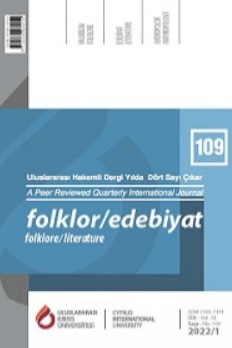Representation of Myth, Folklore and Oral Tradition in Gao Xingjian’s Soul Mountain
Representation of Myth, Folklore and Oral Tradition in Gao Xingjian’s Soul Mountain
Author(s): Anurag BhattacharyyaSubject(s): Cultural history, Customs / Folklore, Oral history, Other Language Literature, Theory of Literature
Published by: Uluslararası Kıbrıs Üniversitesi
Keywords: Gao Xingjian; indigenous ecocriticism; cultural memory; myths; landscape;
Summary/Abstract: Gao Xingjian is a Chinese Nobel Laureate in Literature best known for his renowned novel Soul Mountain that traces the five month journey of the protagonist from the source of the Yangtze River till it meets the China Sea. The unnamed narrator makes a trip to the remote places of the eastern China bordering Tibet and highlights the ravages caused by Cultural Revolution under the leadership of Mao Zedong. In the name of development and in their bid to embrace modernity the Red Guards completely destroyed the people’s sense of rootedness to their land and place and imposed a kind of forced amnesia that compelled them to adopt a life that is artificial and alien to these people. Gao Xingjian in his novel explores the dreams and oral folk narratives of the minority community and also explores the various myths, beliefs, legends and rituals that is integral to their culture. The paper seeks to examine the role of myths, folklore and oral tradition in preserving the characteristic form of civilization and its customs, legends, traditional knowledge, beliefs, superstition and cultures in oral tradition which are transmitted from generation to generation. It further makes an attempt to represent the traces of the buried past under the critical political situation. Soul Mountain makes a journey into the past of the nation and then used it as a source of imparting and preserving the ecological heritage of these indigenous people. The methodological tools of ecocriticism like indigenous ecocriticism, place, landscape, deep ecology, biocenticism have been applied for the analysis of the text.
Journal: Folklor/Edebiyat
- Issue Year: 28/2022
- Issue No: 109
- Page Range: 55-66
- Page Count: 12
- Language: English

